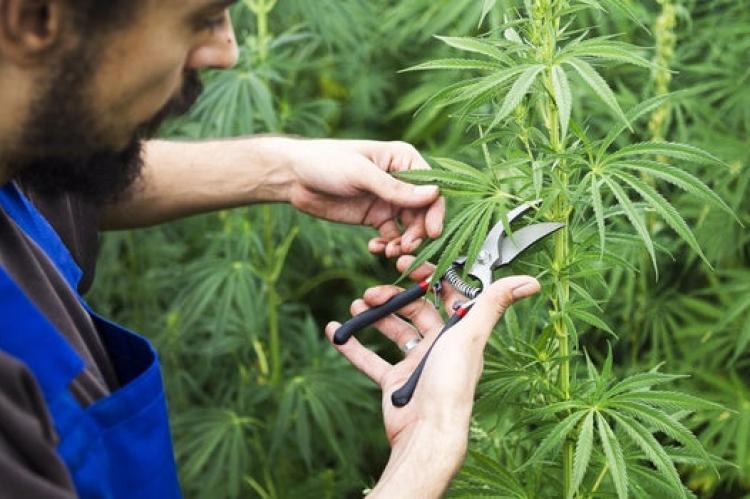American Hemp Farmers May Prosper During The Pandemic
A trade deal signed earlier this year has brought much needed investment from an unlikely ally.
While many businesses have been disrupted, deflated, and even destroyed due to coronavirus related lockdowns, some American hemp farmers may actually end up blossoming as a result. Thanks to a new trade deal between the U.S. and China signed earlier this year, China has agreed to increase its spending on more than 200 American agricultural commodities, including hemp, by $12.5 billion in 2020 and by at least $19.5 billion in 2021. Although the deal doesn’t stipulate how that additional investment must be distributed, some American hemp businesses began seeing increased demand from Chinese buyers that same week.
“A few days after that trade deal got signed, an agricultural company in mainland China who had previously bought our seeds emailed me and said they wanted to place a big order to grow for CBD extraction," says Greg Hunter, Marketing Director of Koala Hemp, a Colorado-based hemp genetics company with clients all over the world. The company believed "the Chinese government will gradually release controls on CBD, and the demand for CBD from Chinese customers will rise sharply, and it will become the world's largest market demand in the future.’”
Good timing
The timing of the trade deal couldn’t have been better as many domestic hemp farmers were struggling to compete in a vastly oversupplied market. In true Green Rush fashion, many eager entrepreneurs rushed into hemp farming and CBD businesses after the passing of the 2018 Farm Bill, which effectively legalized low THC hemp as an agricultural commodity. Despite some analysts predicting that global demand for CBD could be as high as $23 Billion by 2025, several domestic farmers simply could not sell their crops at a profitable margin.
Related: What Does the New Farm Bill Mean For Legal Cannabis?
The impact of the coronavirus crisis
Starting last March, agricultural activity in the U.S, China, and elsewhere was massively disrupted by COVID-19. Yet demand for Cannabis products (both THC and CBD) products spiked, as quarantines and mandatory stay-at-home orders went into effect nationwide.
Hunter and others also noticed a trend in interest for CBG seeds. With the price of CBD biomass dropping to $5 per pound, several of the smaller hemp farmers Koala Hemp worked with inquired about high CBG genetics so that they could grow a more profitable crop.
What was once just a delay for a new Chinese purchase order suddenly began appearing in every phone call, e-mail, and shipping request the Koala Hemp team fielded. “We had seed deals from Saskatchewan to Spain suddenly concerned that their governments wouldn’t allow the importing of hemp seeds or that the paperwork wouldn’t be processed in time for Spring planting,” says Hunter.
It’s possible that this supply shock will cause wholesale CBD prices to rise, yielding higher profits for American farmers growing high CBD hemp. “Now is not the time to give up on a CBD crop,” says Heath Martin, CEO of Kancanna, a Kansas based CO2 hemp extraction business. In fact, Heath is offering harvest contracts to Kansas farmers who are growing Koala’s CBD rich hemp seed, with the intention of exporting the biomass overseas. Martin notes, “American Farmers that have a quality seed from a trusted breeder like Koala have a big opportunity right now to plant and get a jump on the international market because it is going to be American grown hemp that meets the international demand for CBD.”
As recovery plans are discussed and mandatory quarantines are slowly being lifted, it still remains too early to tell how many hemp farmers will be able to take advantage of this upcoming season, how many will miss out, how much prices will shift. Hunter shared that a week after Wuhan ended their lockdown, Koala got an email from their Chinese customer asking for price points to import CBD-rich biomass. One thing that’s clear is for many consumers cannabis and hemp-derived products are essential. While market dynamics and supply chains will need to adjust, global demand for hemp products is here to stay.
- Log in to post comments

